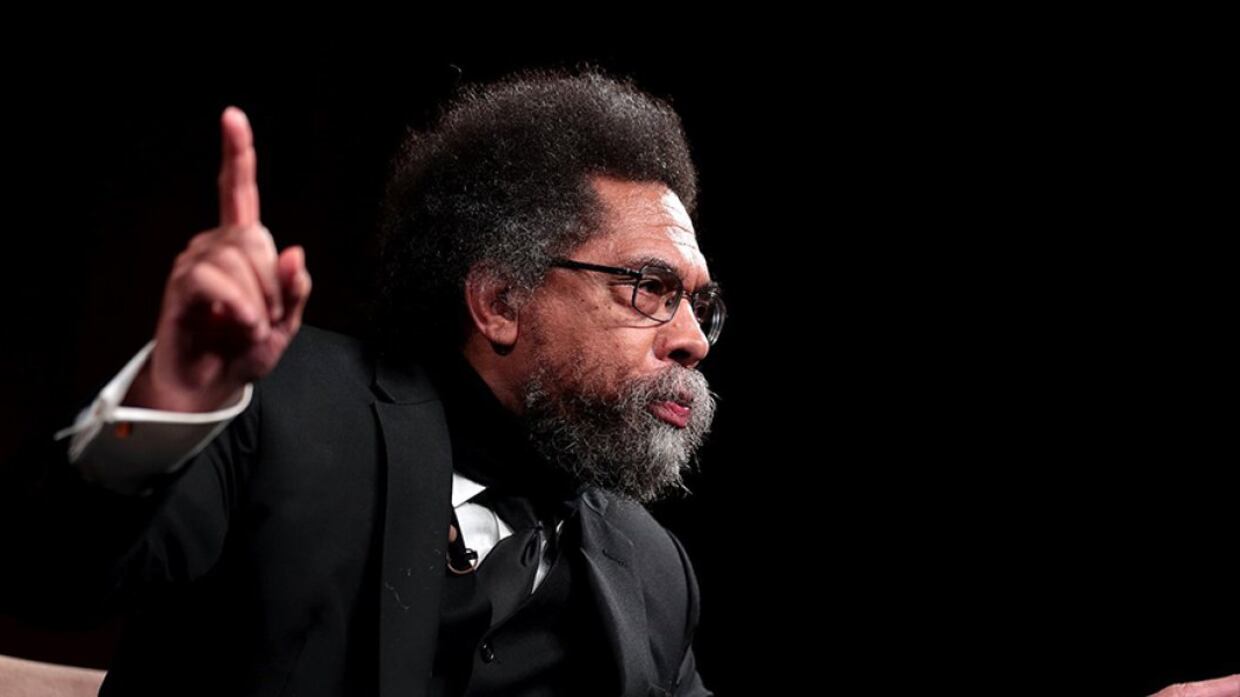Dr. Cornel West spoke about climate change and the American presidency yesterday in an hour-long webinar hosted by Allison Agsten, the director of the USC Annenberg Center for Climate Journalism and Communication.
Dr. West touched on a wide range of topics in the conversation. He mentioned authors like T.S Eliot and Anton Chekhov, musicians like Billie Holiday and the blues, and the philosophy of Martin Heidegger and his critique of European modernity.
“It’s fascinating to see a public intellectual run for office” said Agsten in an interview.
But Dr. West’s focus throughout the talk was climate change, repeatedly utilizing the term “ecocide” to highlight his views on the gravity of the issue. Dr. West explains the term is part of a language that seeks to convey a “real sense of the life and death situation” he believes the planet is undergoing.
“When people talk about genocide, people talk about all kinds of different ‘-cides.’ That ‘ecocide’ is simply one particular word among a whole host of words to get to try to seize people’s imagination” Dr. West said.
‘Climate catastrophe’ is Dr. West’s overarching concern, naming the ‘destruction of democracy’ and the destruction of the relationships ‘between people and communities’ as other issues he sees.
Dr. West’s discussion with Agsten comes during a record-breaking heat wave that has scorched California and the greater southern United States as extreme weather events like floods have hit countries around the world.
Four days prior to the talk, Dr. West tweeted that “Ecocide is the ultimate catastrophe,” a view that he explains further in the webinar.
“For me, there’s a variety of different kinds of catastrophe” Dr. West said. “There’s ecological catastrophe, there’s economic catastrophe, there’s psychic catastrophe, there’s spiritual catastrophe, there’s political catastrophe.”
To combat these issues, Dr. West advocated ideas of solidarity, unity, and education throughout his talk, outlining his belief that climate change is a “moral” and “spiritual” issue that involves all humans and transcends his presidential campaign.
“Running for president is just a moment in a movement. You know what I mean?” Dr. West said. “You really have a group of people you’re trying to convince to look another way, to act differently, to hit issues [of] poverty, homelessness, corporate greed, inadequate housing, decrepit school systems, militarism abroad, and then, the ultimate catastrophe of ecocide itself.”
He also advocated ideals of ‘sensitivity’ and ‘empathy’ as part of the solution, qualities he discusses when explaining the ‘moral’ dimension of the climate change issue.
“Part of the challenge of speaking to our fellow citizens is to get them not to think so short term, just like the big companies, but to think long term what the Earth will look like later down the road given the massive extractive economy that we find ourselves in at the moment” Dr. West said.
His message of ‘connectedness’ with the Earth and long-term thinking is a theme that characterized the webinar.
“He wants to connect with everybody” said Shreya Agrawal, a Climate Fellow at the Center of Climate Journalism and Communication who attended the talk.
As Dr. West answered Agsten’s questions, other terms came up in the talk, such as ‘eco-grief’ which refers to the mental distress that people can encounter when thinking about climate change.
“Eco-grief is something that comes up when I am working with journalists who sometimes spend their day talking about, writing about, thinking about climate change, and that can be awfully heavy” said Agsten.
The discussion of language between Agsten and Dr. West about the terms that are utilized in the public about climate change is in line with the studies that Agsten and the Center engages in.
Throughout the talk, Agsten questioned some of Dr. West’s beliefs and terms, such as his take on climate change being a ‘moral’ issue.
“To me, climate change transcends morals. It is a matter of fact that we all must contend with” Agsten explained.
She also wonders if Dr. West’s language can ‘alienate’ some people, his framing of climate change as a “moral” issue possibly only appealing to the spiritually or religiously minded. Terms such as ‘eco-cide’ might also only appeal to those who already agree with Dr. West Agsten adds.
“Who does the word eco-cide resonate with and who does it potentially alienate?” Agsten said.
The question of who Dr. West appeals to comes up as he critiques both the Democrat and Republican parties, referring to presidential candidates Donald Trump and Ron DeSantis as ‘neo-fascists’ in the webinar and recently criticizing President Biden’s ‘crime against humanity’ in an interview with the New York Post.
Dr. West also criticized the Democrats and Republicans for being in a ‘state of denial’ around the issue of climate change.
“The state of emergency [around climate change] is beyond really an emergency. It’s a catastrophe capital C” Dr.West said.
Dr. West has been observed by progressives and conservatives alike as a ‘threat’ to President, asserting that Dr. West’s bid may suction off votes from President Biden’s re-election campaign.
All throughout the talk however, Dr. West prefers to use terms such as ‘citizens’ and ‘humans’ to refer to the people he is trying to appeal to. He emphasizes his belief that humans are ‘organisms in the world of organisms,’ and finished the talk with a message of hope against climate change.
“I think in the end, we have a chance. I’m not a naive optimist. I’m a prisoner of hope. There’s a qualitative difference.”
